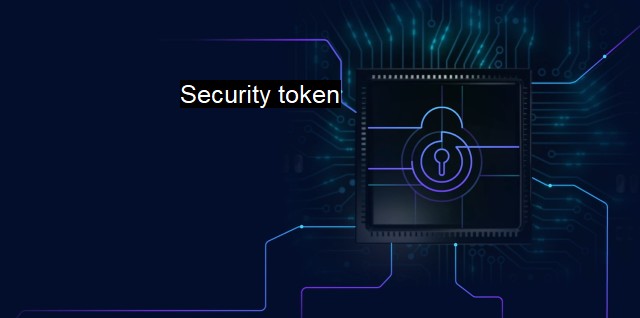What is Security token?
The Advantages of Security Tokens: A Revolutionary Solution for Digital Asset Ownership and Cybersecurity Protection
A "security token" is an important term within the field of cybersecurity and antivirus technology. It represents a critically necessary aspect of digital defense systems to secure an organization or user's information.The term "security token" typically characterizes a physical device that an authorized system user employs to facilitate identity authentication. The two types of security tokens are physical devices and software-based tokens. The device is designed to verify a user’s claims about their identity. Basically, security tokens add an extra layer of validation to control and enhance safety in digital spaces. They stand as an essential component in two-factor and multi-factor authentication procedures.
Physical security tokens take numerous forms, often designed as key fobs, smart cards, or USB devices. When these tokens are required, users cannot gain system access without having the physical token to present as evidence of their identity. Such security mechanisms work by generating a passcode the user must enter after providing their regular login credentials. The passcodes created are usually time-sensitive, making them more secure as they will not provide system access after a specific period.
On the other hand, software-based security tokens work somewhat differently, but for the same purpose fine-tuning safety protocols in the digital space. These software-based tokens, commonly found in mobile applications, generate one-time passcodes that the user needs to log into the system in question. They provide flexibility in denying unauthorized system access if the device fails to verify the correct code, or if an input delay occurs.
Security tokens — both hardware and software — work under robust technologies including Time-Based One-Time Password (TOTP), Hash-Based Message Authentication Code (HMAC), and public key cryptography, among others. Such development provides a hassle-free yet secure way to validate a user's identity since it syncs perfectly with the backend where these technologies are read and decrypted.
When it comes to mapping security tokens in the larger cybersecurity architecture, one can observe that the tokens are instrumental in verifying digital identities and obstructing various forms of cyber-attacks. They represent a layer of defense against unauthorized access into hypersensitive areas of operation such as data breaches, security breakouts, and associated network compromise attempts.
Security tokens aid in preventing the replication of user identities by establishing their unmistakable signature in the digital world. Such inherent idiosyncrasy decreases the chance of identity thefts. Thus, having a token-based security system in place could materially diminish the liability and loss associated with such cyber threats.
Security tokens surpass the conventional keywords in delivering robust security as they entail dynamic data rather than static, adding another layer of complexity for potential attackers. This characteristic makes them practically unconquerable using brute force or other common methods since the answer continually changes with each log-in attempt.
The effectiveness of security tokens also means they require careful handling. For instance, physical tokens, if lost or stolen, can grant access to whoever possesses them. Misplaced software tokens may have detrimental effects as well; unauthorized individuals may retrieve the owner's information.
The security token plays a pivotal role in the cybersecurity and antivirus framework to forge a safer digital space. It symbolizes an indispensable component in this age of escalating cyber vulnerabilities. Thus, encrypted communication, stringent authentication methods, and ongoing security audits have become more prevalent to integrate tokens into wider cybersecurity mechanisms effectively.

Security token FAQs
What is a security token?
A security token is a digital device or software application that generates temporary security codes used for multi-factor authentication (MFA). This type of security measure helps protect against unauthorized access to sensitive information such as online banking, email, or other online accounts.How does a security token work?
A security token generates a unique code that is required in addition to a username and password when logging into a system. This code is usually time-based and changes every few seconds. The user must enter the code in order to complete the login process. This extra layer of protection helps prevent unauthorized access even if the user's password has been compromised.What are the benefits of using a security token?
Using a security token is an effective way to prevent unauthorized access to sensitive information. It can also provide peace of mind for users who are concerned about the security of their online accounts. Additionally, security tokens can help businesses comply with regulatory requirements for data protection.Do I need a security token if I have antivirus software installed?
While antivirus software is important for protecting your computer from malware and other cyber threats, it does not provide the same level of security as multi-factor authentication with a security token. Antivirus software can detect and remove known threats, but it cannot protect against all types of attacks. Using a security token in addition to antivirus software can provide an extra layer of protection against unauthorized access to your accounts.| | A | | | B | | | C | | | D | | | E | | | F | | | G | | | H | | | I | | | J | | | K | | | L | | | M | |
| | N | | | O | | | P | | | Q | | | R | | | S | | | T | | | U | | | V | | | W | | | X | | | Y | | | Z | |
| | 1 | | | 2 | | | 3 | | | 4 | | | 7 | | | 8 | | |||||||